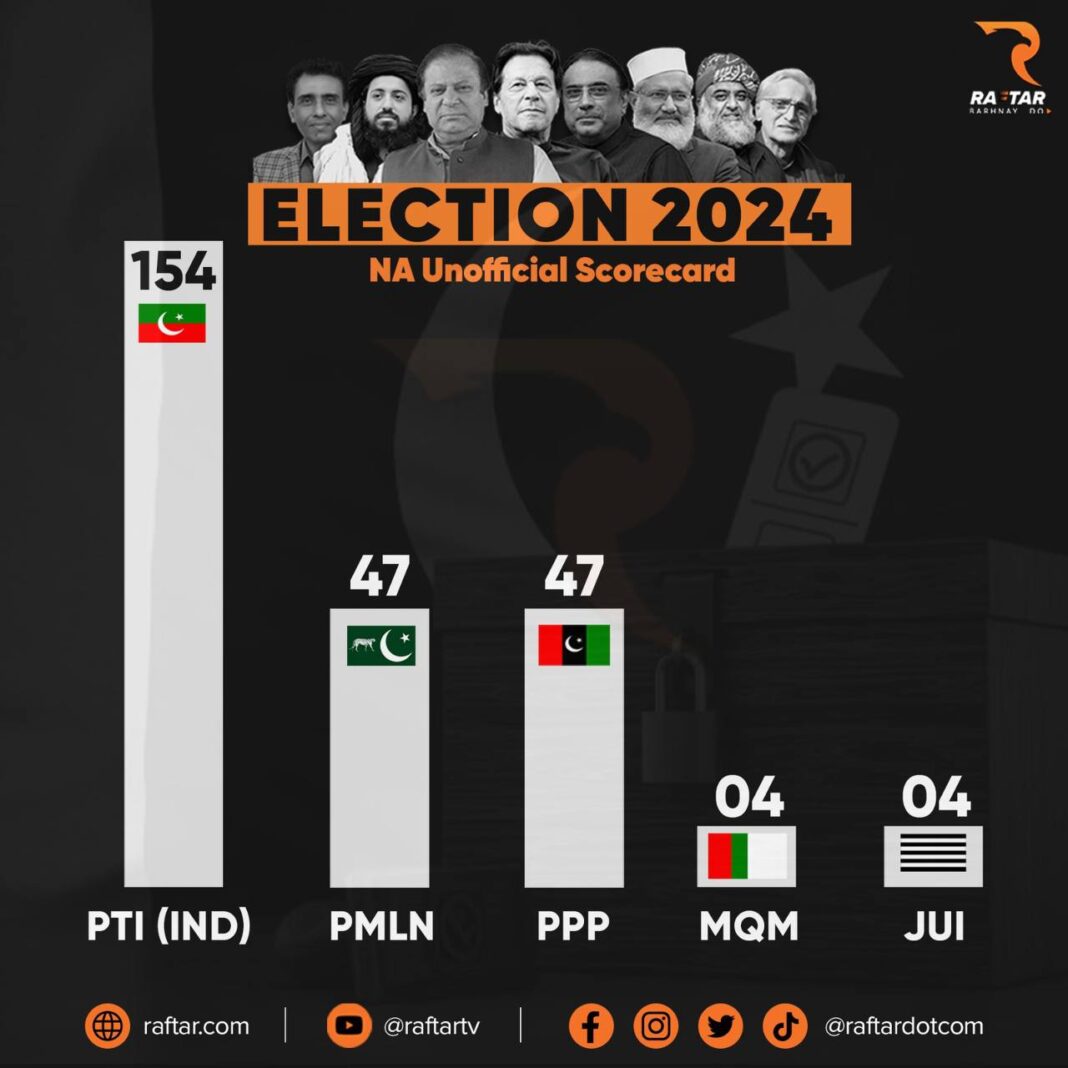Pakistan finds itself at a critical juncture as the hotly contested 2024 Pakistan general elections draw to a close. With over 100 million registered voters, these elections represent a democratic exercise unparalleled in Pakistan’s history. However, allegations of rigging and interference now threaten to undermine the credibility of the final results. This article provides an independent analysis of the key developments.
A Tumultuous Road to the Elections
The road leading up to the 2024 vote has been far from smooth. The previous Pakistan Tehreek-e-Insaf (PTI) administration under former Prime Minister Imran Khan was ousted in April 2023 through a no-confidence motion – a first in the nation’s history. What followed under the new coalition government led by the Pakistan Muslim League Nawaz (PMLN) was nine months of political turmoil and claims that the relief initiatives started by the previous regime were being undermined.
Imran Khan himself was briefly arrested, sparking widespread protests by his supporters. Combined with the economic crisis, rising inflation, and devastating floods, pent-up frustrations were reaching boiling point. It was in this charged environment that the elections were announced.
The Campaign Season
Belying many predictions, the PTI vigorously campaigned across Pakistan, with Imran Khan himself addressing dozens of rallies attended by hundreds of thousands despite recovering from bullet injuries in an assassination attempt. His anti-corruption and nationalist agenda continued gaining traction amongst the youth and middle classes.
In contrast, the PMLN struggled during its electoral campaign, facing regular attacks at its rallies and dissent from within. Along with its coalition partners – the Pakistan People’s Party (PPP), Jamiat Ulema-e-Islam Fazal (JUI-F) and others, it attempted to highlight claims about its economic management and ties to foreign powers as strengths.
The Pakistan Army, while vowing to remain apolitical, was the target of criticism from both camps for its perceived interference in the country’s political affairs. Other parties like the Jamaat-e-Islami (JI), Tehreek Labbaik Pakistan (TLP), and Baloch ethno-nationalists also entered the fray.
Days Before the Vote
In the days leading up to the polls, allegations arose regarding “pre-poll rigging” targeted specifically at the PTI. These included the last-minute rejection of nominations from PTI electoral candidates, cases against party leaders, and disciplinary action against dissidents in other parties urging support for Imran Khan.
Social media access was restricted, media outlets were pressured through curbs and intimidation, and paramilitary Rangers deployed across major cities as tensions spread. Combined with the arrest of PTI’s Senior Vice President, Fawad Chaudhry, under sedition charges days before the polls, these actions raised serious concerns.
Election Day Irregularities
When the Pakistani voters finally went to the polls on Wednesday, February 8th, 2024, the stage seemed set for a confrontation between the aspirations of its citizens and once again, the powerful Establishment. As during previous elections, infrastructure and organizational issues resulted in delays at polling stations across Pakistan.
However, more troubling this time were the targeted shutdowns of mobile networks and internet access in multiple areas, ostensibly due to ‘security threats’. Voters were left unable to verify polling locations or report any irregularities they witnessed throughout the day. Despite the obstacles, tens of millions turned out to vote in provinces like Punjab and Khyber Pakhtunkhwa.
Later in the day, armed confrontations broke out between party activists in various parts of Sindh and Balochistan. The fairness and transparency of the overall process was widely questioned as results failed to come in well past midnight.
Confusion Over the Outcome
Despite the blanket mobile network and internet suspensions, eyewitness reports on the night of February 8th strongly indicated a sweeping PTI victory. As counting was underway, PTI and other analysts reported leads of over 150 National Assembly seats on the basis of form 45 tabulation from individual polling stations.
However, beyond midnight, the Election Commission of Pakistan (ECP) suddenly stopped releasing constituency-wise results after only 25 had officially come in. They cited ‘technical difficulties’ despite earlier assurances that counting would be concluded by the morning of February 9th.
With over 80% of the results believed to be compiled but withheld from the public, confusion prevailed. The abrupt halting of the counting process and delays from the ECP in announcing the final outcome have raised grave concerns over potential tampering and denial of the electoral mandate.
The Coming Days
As the night of February 9th draws to an end, Pakistan’s fate hangs in the balance. While the ECP has promised that result compilation is nearing completion, fears remain that election manipulation may be underway even as this piece is being written.
What is clear is that any substantial alteration of the electoral verdict at this belated stage risks unprecedented unrest. Even mainstream journalists have warned that the public backlash to a ‘doctored mandate’ could quickly spiral out of control. Calls have also grown for foreign observers to scrutinize the results before final ratification.
Ultimately, the events of the past year – whether the pullback of facilities to flood victims, the heavy-handed response to anti-inflation protests, the politically motivated cases against opposition voices, or the blatant curbs on press freedom during elections, have eliminated any benefit of doubt the current government enjoys. Sidelining the clear electoral choice of the public can only pave the way towards greater instability.
Pakistan today stands at the cusp of history, where the consequences of the result could determine its destiny for generations. The nation’s democratic future depends on the will of its people being respected. One can only hope wise counsel prevails to ensure a peaceful transfer of power to whoever the voters have chosen through this hard-fought electoral exercise. The alternative may prove too terrible to imagine.


